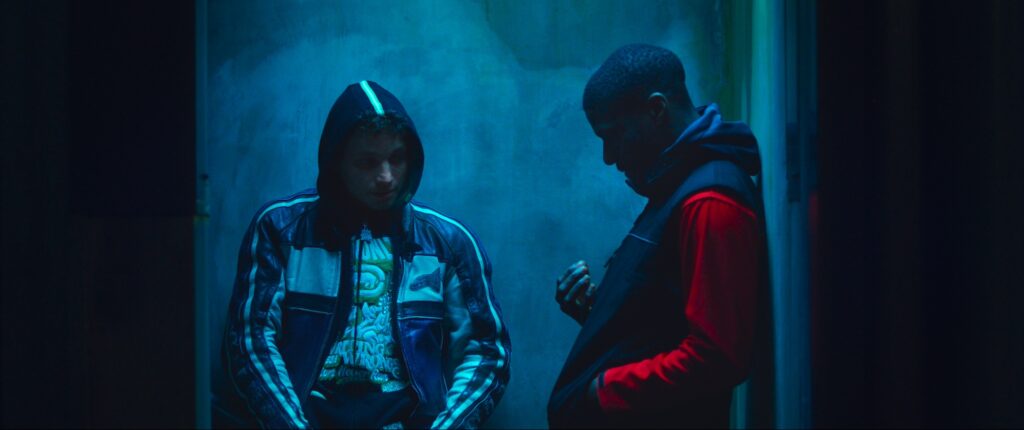‘Eat the Night’ May Have Its Naysayers, but the Journey Is a Likeable One
Those who pine for the insouciant grit of American films from the 1970s will find it in Caroline Poggi and Jonathan Vinel’s second film — and, irony of ironies, it comes courtesy of the French.

Caroline Poggi and Jonathan Vinel have released their second picture, “Eat the Night,” and so far the reviews are not all good. Their debut feature, “Jessica Forever” (2018), passed under my radar, but a cursory scan finds the critical responses to it are similarly mixed. Given how much I was initially put off by “Eat the Night” and how thoroughly I became engrossed in it, I can’t help but place “Jessica Forever” a few places up on my watchlist.
The primary complaint about “Eat the Night” is that it takes on more than it can handle. Although the cast of characters is limited, the range of situations is not. Ms. Poggi and Mr. Vinel have made a gangland epic that doubles as a love story; it is buttressed by the tale of a young woman coming of age. That’s not all: There are sidebars about family duty, parental neglect, and how technology is both a vital means of communication and a dubious substitute for human relations.
In the press notes accompanying the film, the directors stake a claim for a cinema that “juxtaposes different worlds, then makes them collide.” Working alongside screenwriter Guillame Bréaud, Ms. Poggi and Mr. Vinel have made a film that plays up and, to a degree, lampoons the distinctions to be made between virtual reality and reality itself, between the escapism afforded by fantasy and the exigencies of the material world. How do these parallels stack up? With not a little mess, as one might imagine.
Our brother and sister leads, 20-something Pablo (Théo Cholbi) and his younger sibling Apolline (Lila Gueneau), live in a big-and-blocky home in the suburbs at Le Havre, France. Although their rooms are just down the hall from each other, Pablo and “Apo” spend most of the time interfacing on an online game titled “Darknoon.” They’ve adopted characters who are, respectively, buff and bodacious, and they spend their time in a dystopian hellscape populated by extravagant monsters, hyperbolic settings, and flames, lots of flames. An alien apocalypse, it seems, brings out the operatic in game designers.

(c) Atelier de Production – Agat Films & Cie – Arte France Cinéma
The day comes when “Darknoon” announces that it will be shutting down its server. Apo is distraught, but, then, life is full of changes. Not too long ago, Pablo brought home a boyfriend named Night (Erwan Kepoa Falé). Night seems okay and all, but he is distracting Pablo, and Apo isn’t happy about the loss of attention. Actually, Pablo is very distracted — not just by newfound love, but by the duties inherent to being a dealer and manufacturer of illicit drugs.
Pablo is a minor-league criminal — his profits are kept in a shoebox — but when he incurs the wrath of a local crime boss, Louis (Matthieu Perotto), his problems become major. It doesn’t help that Pablo is quick to anger and impulsive in his actions. Night has a steadier head on his shoulders, but the drug business, of which he has since become co-partner, has its own moral parameters. When Louis sets up Pablo for a police raid, Night seeks revenge by sneaking into the mobster’s luxe home with a jug of petrol and a match. Just as he’s about to light the latter, Night hears a peculiar sound and goes to investigate. …
Without giving up too much of the game, let’s note that the milk of human kindness is not out of the purview of the story even as its characters engage in and undergo the basest kinds of behavior. I’ll side with the film’s naysayers in that there are plot elisions that prove a mite convenient if not altogether unlikely. Still, on the whole, “Eat the Night” ambles along its byways with a likable, if often graphic and sometimes unsettling, gestalt. Those who pine for the insouciant grit of American films from the 1970s will find it here — and, irony of ironies, it comes courtesy of the French.

